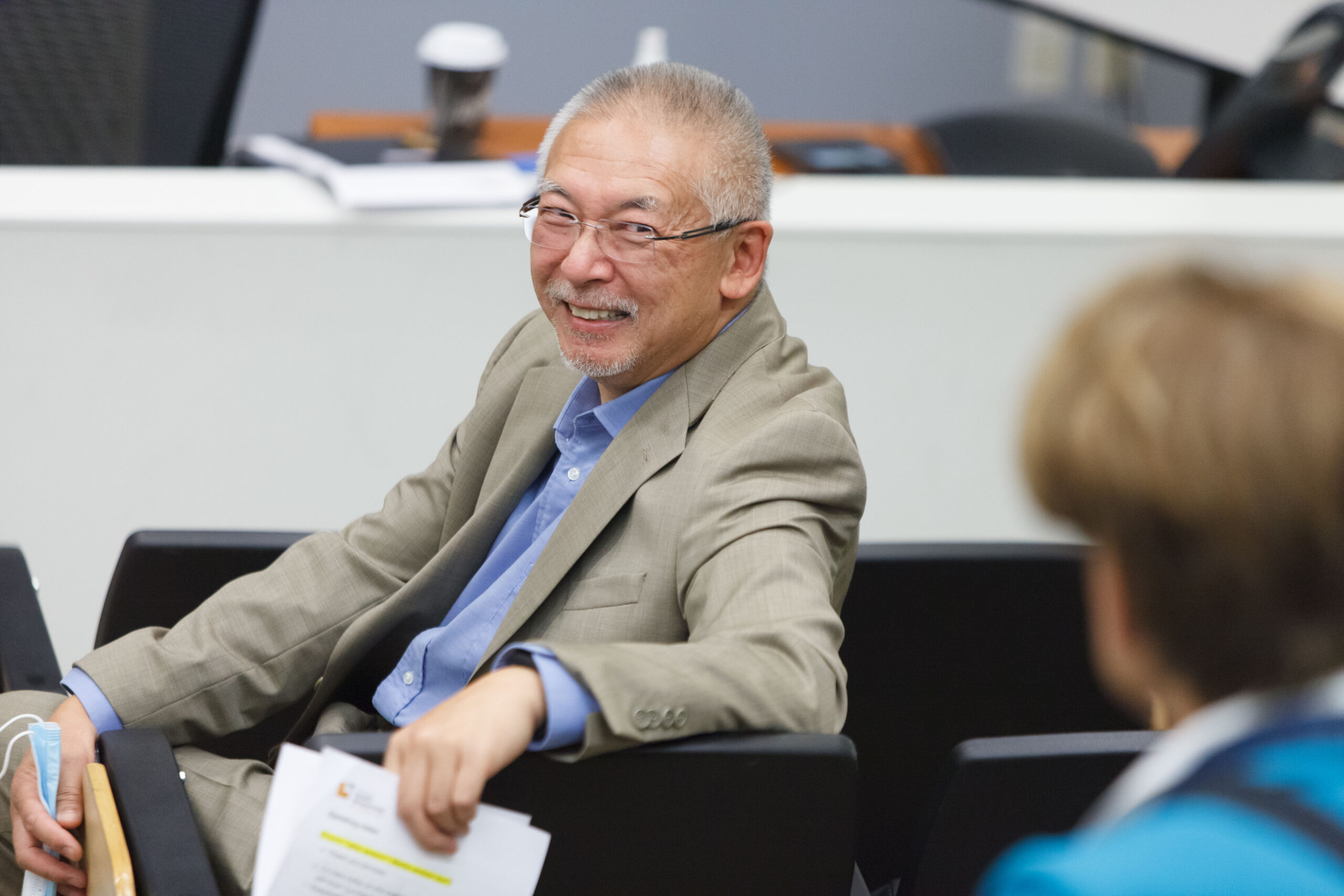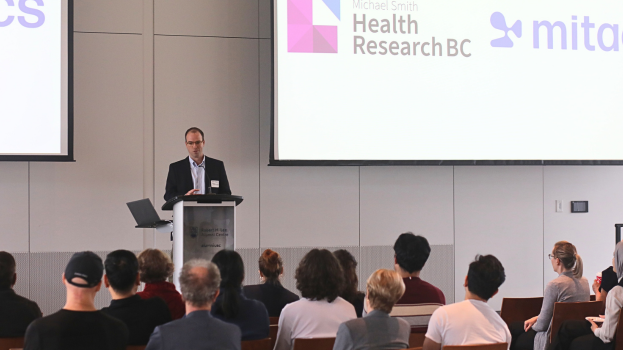Patients change how we do research, move hearts and minds
14 September 2022

Sunny Loo, patient partner representative, sits in a lecture hall at Royal Jubilee Hospital, Victoria.
Patient partners provide valuable knowledge in health research.
Patients are often overlooked when designing health research projects. Researchers in BC wanted to change that. With funding from the BC SUPPORT Unit, teams set out to learn the best ways to engage patients in health research design, and the Methods Clusters were born.
Over five years, teams focused on methods research questions and learned how to involve patient partners in safe and ethical ways. For many, this was a new practice, and some were challenged to reconsider the very foundation of their work. Many of the researchers walked away with a new appreciation for the wisdom of patient partners, and deep gratitude for their guidance.
“Our funders committed close to $5 million to support this ground-breaking methods research program,” said Stirling Bryan, chief scientific officer of Michael Smith Health Research BC. “We could not have done it without this support and the tremendous leadership from our cluster leads and the research teams. I’m incredibly grateful to everyone who believed that patients have a vital role to play in methods research.”
Some projects were focused on diversity in patient-oriented research and included partners from Indigenous communities, and people in LGBTQ2S+, immigrant, refugee, racialized and ethnocultural communities, among others.
“I learned that as hard as the work is, and continues to be for me, it is equally hard for our Indigenous partners,” says Lena Cuthbertson, provincial executive director at the BC Office of Patient-Centred Measurement. “It works best when we give space to listen. I made mistakes, but I was authentic about wanting to work together. It opened the door a crack to making a difference. Funding from the BC SUPPORT Unit was vital in our work to begin decolonizing and Indigenizing methodologies for patient-centred measurement.”
The work engendered a new cohort of investigators who recognize the value of patient engagement. Trainees were immersed in patient-oriented research, and investigators began to rethink the role of patient partners.
“One of our key learnings was that patients and public became researchers in their own right,” says Linda Li, professor in the Department of Physical Therapy, University of British Columbia. “This program changed our thinking about how we interact with patient partners – they should be co-researchers in our shared work.”
Although the teams broke new ground on how to do patient-oriented research, barriers continue to make progress difficult.
“Part of the work we have ahead of us includes addressing the barriers around systemic change to truly engage with our partners,” says Erin Michalak, professor in the Department of Psychiatry, University of British Columbia. “Our job is to cultivate the learnings that will continue to grow and bear fruit.”





